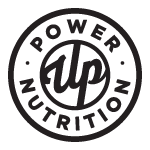One of the big reasons I got into nutrition coaching was to improve performance. Once I saw the impact it had on my own performance and recovery as well as my husbands, I knew I wanted to learn as much as I could and share this knowledge with others.
Before we even bring up timing, one thing to understand is that your diet as a whole has a big impact on your overall health, performance in the gym, and ability to recover. Yes, what you eat pre-workout will have an impact, but not as much as the overall quality + quantity of food in your diet.
This post is not to give you a recipe for the perfect energy balls to have before your workout or tell you which supplements to take. Rather this is to provide as much help for you to figure out how to approach your diet as a whole with your athletic performance in mind. There is nothing magical about pre or post-workout nutrition. You really need to pay attention to your diet and lifestyle as a whole to truly make an impact on your performance and recovery. Not just the snack you grab before or shake you drink after.
But back to pre-workout. Why we need a pre-workout? To fuel our workout. What fuels our workout best? Mostly carbs. There are some commonalities and we will provide you with further guidance, but it’s important to understand that a lot of it will be individual to you and your own unique needs and digestive system. And also situational, meaning will likely depend on a multitude of other factors. Like your activity of choice, what else you ate that day, time since your last meal, time of day you are training etc.The right answer to most questions when it comes to nutrition is always going to be “it depends”.
Before I repeat myself too much you can visit this blog I wrote a while back. https://powerupnutrition.ca/what-to-eat-before-you-train/ there’s even a few recipes in this one, including my go-to base to make overnight oats.
Let’s clear up a big misconception. What you are eating just before your workout is not technically fuelling your workout. What you ate yesterday is what your body will draw from when you workout today in terms of energy availability. See our bodies are pretty amazing and constantly working and it takes a while for it to work its magic and for our glycogen stores to replenish. This is what you will draw from in the gym.
Coincidently this is why if your goal is to eat to perform, we will not be prescribing you with rest days macros as this would inhibit your ability to recover and leave you with a low tank on your next workout. It takes anywhere from 24hrs to a few days for your glycogen stores to fully replenish after a hard workout. Your body can store about 12-14 hours worth of it for your daily activity, but a hard workout lasting 2hrs+ can deplete all of it.
Carbs are your friend as an athlete.
Your body relies on carbohydrates, in the form of glycogen for it source of energy. After a while your body switches to using fat as fuel or for lower intensity exercise, but even then, glycogen is required to convert fat into usable fuel.
All that being said, most of us still do feel better when we workout with some food in our tummies. Why would that be? Three words. Blood sugar balance.
Eating before a workout will stabilIze your blood sugar and prevent you from crashing mid-run or mid-workout. I know I have experienced this before and it is no-fun!
The goal of your pre-workout nutrition should be to have you feeling great during your workout, reduce muscle breakdown during exercise and when done right can actually improve your performance. Too often I see people just getting through a workout and not being able to perform before they are simply trying to train on an empty tank! We also look for digestibility. Aka. Nothing too hard to digest while you exert yourself.
You want to consume a mix of lean protein and easy to digest carbs, keeping the fat and fibre to a minimum to support digestion. Just think how you feel after eating a bowl of quick oats versus a loaded burger and fries! It’s important to chose something you can digest easily and won’t slosh around your stomach during burpees. By going into your next workout fed and energized you are much more likely to get more out of that workout!
Easy to digest carbs tend to be the lower fibre counter part. Like quick oats vs steel cut. White rice as opposed to brown rice. Nothing wrong with brown rice or steel cut, but in and around your workout you want to stick to foods that are easier to digest so that blood flow isn’t directed to your stomach mid-run, which take it from me is no-fun.
Some of this you will need to experience for yourself. Some people can have low-fat dairy, others no dairy of any kind. Your friends might swear Fig Newtons are the best and yet they may not work at all for you. Best way to know what works for you? Experiment in training and pay attention to how you feel.
A few things to consider.
- When was your last meal? If you had a balanced meal in the last 1-3hrs you may not need to add any additional nutrition. Again it can be situational? How hungry are you? How big is the workout you are about to take on? How big was your last meal?
- What type of workout are you about to do? For example if you are going to go for a hard run and breathe hard, you probably want to be as close to fasted as possible. If you are doing a smaller and less demanding workout, you may not need or use as much fuel.
- The duration of your workout, there is a big difference between a 30 minutes light jog and a 2hours strenuous mountain bike ride.
- What works for you! I know, it’d be easier if I gave you more specifics and I will try my best below, but you will need to experiment some here and figure out what feels best for you. When I was a long distance runner I had a very specific breakfast before my long runs, because trust me weird things happen to your digestion in a 2+ hours run. It worked for me, I ate it every Sunday and stuck to it. Crossfit is no different. Find what works for you, we are all unique. During training is the best time to experiment. The goal is come game day to be very well prepared and know what works best.
Timing matters in the type of carbs you chose, If you have more time you can opt for a more complex carbs which will keep you fuller longer and take longer to digest. If my meal is 2-3 hours before the gym I have more time to digest and therefore don’t need to be as cautious.
Below are some examples for you, but you are not limited to these choices.
Pre (slow digesting >1hr prior)
- Beans, lentils
- Berries
- Bread, Whole Wheat
- Corn
- Couscous
- Granola, low fat
- Kodiak Power Cakes (available at Costco)
- Oatmeal, cooked
- Pancakes, whole wheat
- Pasta, Whole Wheat
- Plantains
- Quinoa, Raw
- Rice, Brown
- Squash, Butternut
- Squash, Yellow
- Sweet Potatoes
- Tortillas
- Yams
If you have less time, you will most likely want something smaller, but also you will want simpler carbs, easier and quicker to digest. This is what you grab if you are snacking quick on your way out the door to your gym or if you have 90 minutes of less to digest. Play with quantities here and see what works best for. you.
Pre/Post (fast digesting – 30min prior)
- Banana, ripe
- Basmati Rice
- Cereals that aren’t whole grain based
- Coconut water
- Dates, Pitted
- Honey
- Low fat chocolate milk
- Oats, Quick or Instant
- Pancakes, White
- Pasta, White
- Rice Chex Cereal
- Sorbet
- White Bread
- White Potatoes
- White Rice
Bottom line is you want to be fed, but feel light. We recommend pairing carbs with lean protein and keeping fats to a minimum. Again to promote better digestion.
Some of my go-tos;
- Quick oats is an eternal favourite. If training in the morning I make myself a big bowl of proats, 99% of the time. If you don’t have my recipe for proats yet, ask me I’ll be happy to share!
- Kodiak Cakes – pair amazingly well with berries, syrup, lean bacon, anything you like.
- Breakfast cereal – Peanut butter organic Puffins are my go-to or Maple Cheerios (Canada eh!). If you know you know. I like to mix unsweetened almond milk with vanilla or chocolate protein to add to it.
- Kids snack size Rice Krispies Squares. I buy these in bulk, small and hits the spot, I save these for when I need a little something but don’t have a lot of time to digest.
- Baby food pouches-anything with yams and fruits usually for me. I pack these on every competition I do.
- Coconut water – pairs really well with protein powder to make a lightly sweeten shake.
- Gatorade, again, mixes well with a good protein powder. Orange Gatorade + vanilla protein = Orange creamsicle.
- Banana smoothie- 1/2 to 1 banana, 1 scoop of chocolate PB protein, unsweetened almond milk + a few ice cubes in your blender. Poor man’s version, have your protein with water in a shaker cup and eat the banana in the car on way to gym!
If you are someone who competes in a sport like Crossfit, or enters events like adventure race, marathons or triathlon, you will want to practice your nutrition in training to figure out what works best for you come game day!
Trying out new protocols or food under pressure is too risky, but since most of you train multiple times a week you have plenty of opportunities to experiment before the big game day. Which will be my a follow-up post, fuelling for competition, right after we talk about post-workout nutrition.
If you have specific questions as it regards to your needs please comment below.
Happy training!
Annie 🙂



